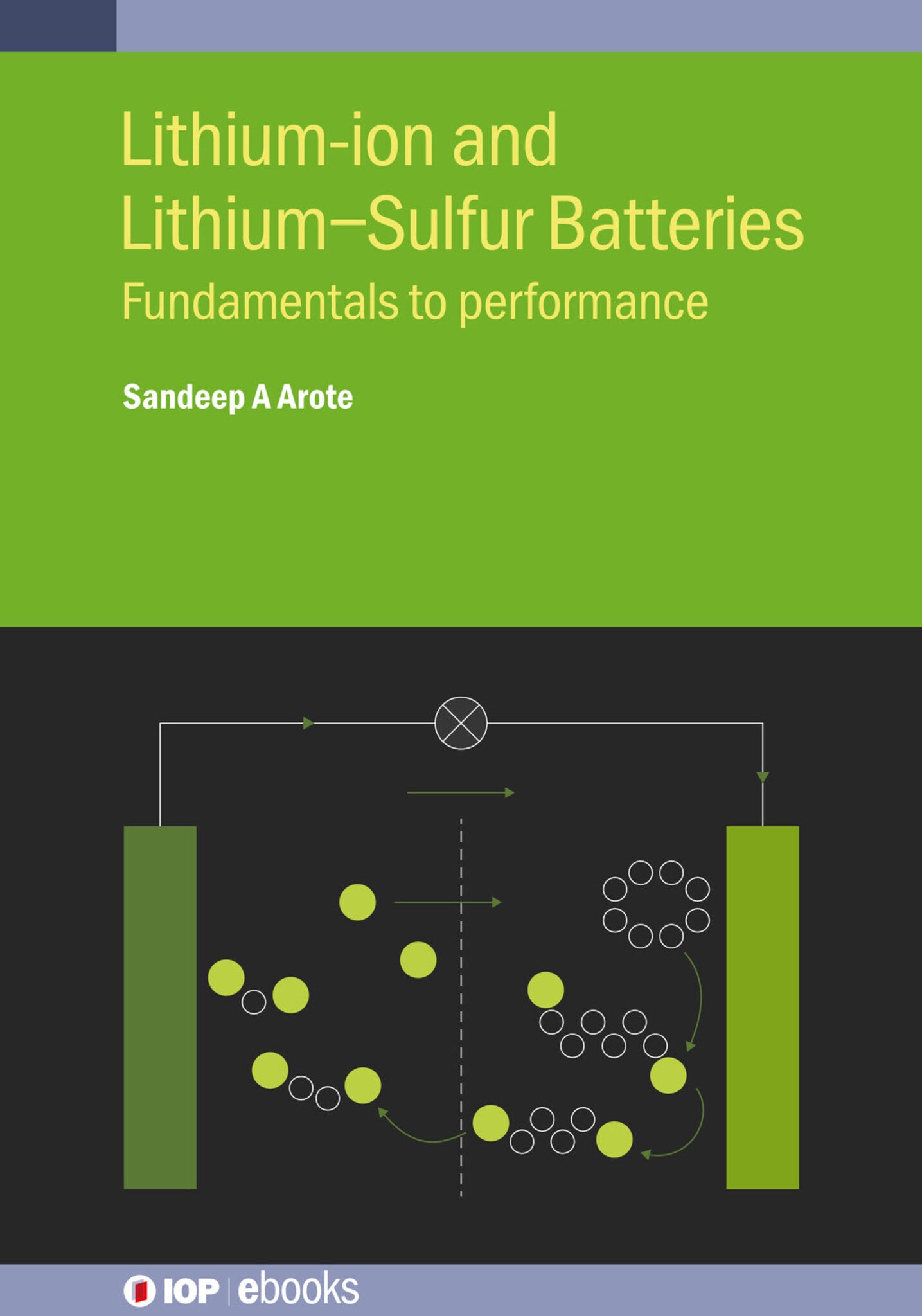We're sorry. An error has occurred
Please cancel or retry.
Lithium-ion and Lithium-Sulfur Batteries

Some error occured while loading the Quick View. Please close the Quick View and try reloading the page.
Couldn't load pickup availability
- Format:
-
01 December 2022

This research text explores the fundamentals, working mechanisms, electrode materials, challenges, and opportunities for energy storage devices of Lithium-ion and Lithium-sulfur battery technology. It introduces the components and specifications for energy storage devices and the requirements of each component for ideal electrochemical performance. The book presents the features, advantages, disadvantages, and efforts made to enhance the performance of each class of material used in Lithium-ion and Lithium-sulfur batteries. Electrochemical performance of different classes of material is discussed throughout as well as the recent trends in material development and technology in the field.
This research text is useful to graduate students, industry professionals in energy, nanoscience, material science, and automobile industry for e-vehicles.
Key features:
- Provides all fundamentals of lithium-ion and lithium-sulfur battery technology
- Requirements of each component ideal for electrochemical performance will be detailed
- Features, advantages, disadvantages, and efforts to enhance perforce of each class of material used will be provided
- Discusses recent trends and future technological applications

TECHNOLOGY & ENGINEERING / Power Resources / Alternative & Renewable, Energy, power generation, distribution and storage, SCIENCE / Chemistry / Electrochemistry, TECHNOLOGY & ENGINEERING / Materials Science / Electronic Materials, Electrochemistry and magnetochemistry, Materials science

The content of the book focuses on energy storage technologies, namely lithium-ion and lithium-sulfur batteries. Chapter 1 begins with a highly readable and informative summary on lithium-ion batteries (LIB), providing essential fundamentals and perspectives. Chapter 2 is on the positive electrode (cathode) materials of a LIB. With a reference list of 334 items, it provides a very good scientific summary of different choices for cathode material. Chapter 3 is on fundamentals and perspectives of lithium-sulfur batteries, with a reference list of 53 articles. The author is optimistic about the future developments of lithium-sulfur battery chemistry. The final chapter of the book is on cathodes for lithium-sulfur batteries. Overall, this is a very fine piece of work on electrochemistry of lithium based batteries, with a strong practical orientation. This will be a very useful reference book for postgraduate students working on lithium batteries, and academics who work on electrochemistry research.
Nihal Kularatna, IEEE Magazine, July/August 2023
Chapter 1: Fundamentals and perspectives of Lithium-ion Batteries • Introduction • Battery types • Secondary battery • Components of Electrochemical cell (EC) • Lithium ion battery • Components in LIB • Electrochemistry related to LIB • Importance of Li • Working mechanism • Driving force for moment of Li+ in LIB • Voltage of a battery • Battery Charging and discharging Process • Commonly introduced materials • Challenges and Opportunities • Conclusion • References Chapter 2: Positive Electrode Materials for LiB • Introduction • Materials for Li –ion battery: • Active Material for LIB: Cathode • Criteria for selection of cathode material: • LMO Material for Cathode electrode o LiCoO2-Based Positive Electrode Material o LiNiO2-Based Positive Electrode Materials o Spinel LiMn2O4-Based Positive Electrode Materials o LiFePO4-Based Positive Electrode Materials. • Other Positive Electrode Materials • Conclusion • References Chapter 3: Fundamentals and perspectives of Lithium-Sulfur Batteries • Introduction: Limitations of Li-ion battery and current needs • Lithium-Sulfur Batteries
• Working Principle and Mechanism • Importance of S • Theoretical predictions • Components in LIS • Commonly introduced materials • Role of Electrolyte in Sulfur Cathode Chemistry • Importance and limitations of LiS • Challenges and Opportunities • Conclusion • References Chapter 4: Host Materials for sulphur in LiS battery • Introduction • Physical confinement of sulfur species and Chemical anchoring of sulfur species o S fixing o S capturing • Host matrices for Sulfur o Carbon based o Metal oxide based o Metal sulfide based • Challenges and Opportunities • Conclusion • References



